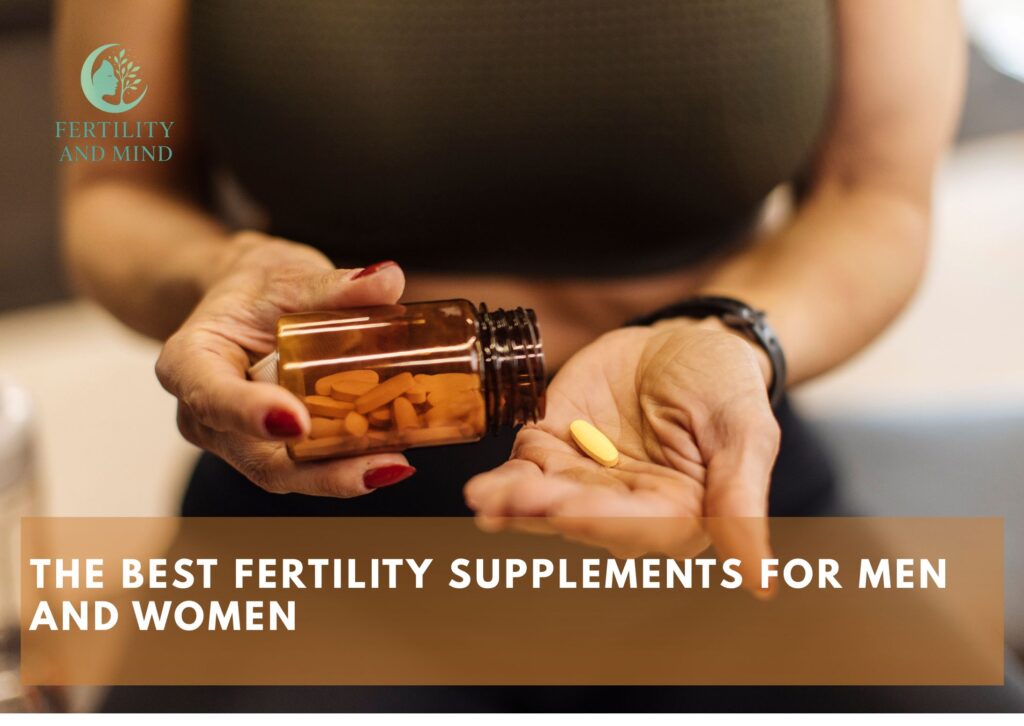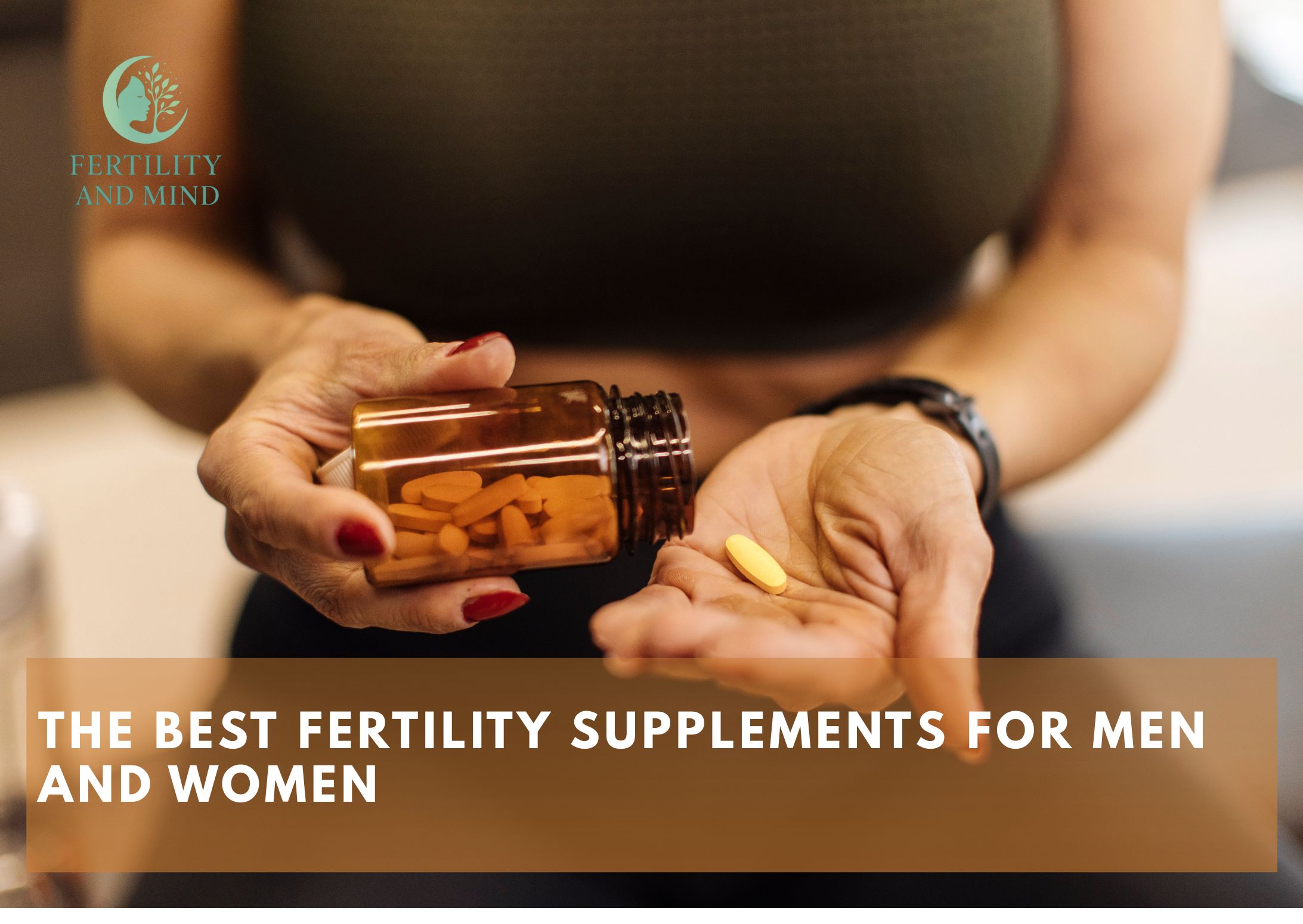
Why Fertility Supplements Matter for Men and Women
Fertility is not only about age or genetics. Both men and women can benefit from specific nutrients that support egg quality, sperm motility, and hormonal balance. Today, fertility supplements are seen as a key part of preconception care, both naturally and in assisted treatments like in vitro fertilization (IVF).
(In my case, when I started taking supplements, it was because we had been trying for months with no results. At first I was confused, but little by little I understood that they could be a complementary support, not a magic fix).
Key Nutrients That Boost Fertility Naturally
- Folic Acid: essential for preventing neural tube defects and supporting ovulation.
- Vitamin D: regulates sex hormones and improves endometrial quality.
- CoQ10: a powerful antioxidant that protects eggs and sperm from oxidative damage.
- Omega-3 (EPA and DHA): linked to embryo quality and sperm motility.
- Zinc and Selenium: critical for healthy sperm production.
- Inositol: improves insulin sensitivity and helps in cases of PCOS (polycystic ovary syndrome).
(I remember when the doctor recommended vitamin D and omega-3, I thought: “They’re just vitamins, how much difference can they make?” But I did notice changes, especially in my cycle regularity).
Best Fertility Supplements for Women
- Folic Acid: 400–800 mcg daily.
- Vitamin D: adequate levels improve pregnancy rates.
- Inositol: helps women with PCOS ovulate more regularly.
- CoQ10: supports ovarian quality in women over 35.
- Omega-3: promotes embryo development.
For Women: Key Benefits
- Regulates menstrual cycle.
- Improves ovarian reserve.
- Increases endometrial receptivity.
Best Fertility Supplements for Men
- Zinc: essential for testosterone and sperm production.
- Selenium: improves sperm motility.
- CoQ10: boosts energy in sperm mitochondria.
- Antioxidants (Vitamin C and E): protect against oxidative stress.
- L-Carnitine: associated with higher motility.
For Men: Key Benefits
- Increases sperm count and motility.
- Improves sperm morphology (shape).
- Reduces free radical damage.
(As a user, I tried CoQ10 and antioxidants after a doctor recommended them. I was surprised when my sperm analysis improved, and that gave me a boost of confidence).
How to Choose the Right Fertility Supplement (Doctor vs. Market Options)
- Medical consultation: ideally, get bloodwork before starting supplements.
- Trusted brands: look for certification and transparency in ingredients.
- Complete formulas: some prenatal vitamins include most of the key nutrients.
(When I went to the clinic, the doctor gave me a clear list of supplements. Honestly, it was a relief to know I was taking the right ones instead of just what I saw online).
Are Fertility Supplements Safe? What Science Says
- Generally safe when taken in recommended doses.
- Risks come with megadoses or unregulated products.
- Research supports folic acid, vitamin D, omega-3, and CoQ10.
- DHEA and melatonin require strict medical supervision.
How Long Should You Take Fertility Supplements Before Pregnancy?
- Ideally: 3 to 6 months before trying to conceive.
- This allows time to improve egg and sperm quality during maturation cycles.
- In fertility treatments, timing varies by medical recommendation.
Fertility Supplements vs Prenatal Vitamins: What’s the Difference?
- Prenatal vitamins: designed for confirmed pregnancy; include folic acid, iron, iodine.
- Fertility supplements: focused on optimizing conception; often include antioxidants, CoQ10, inositol.
- Tip: they can complement each other, but always under medical advice.
Expert Tips to Maximize Fertility Naturally
- Maintain a healthy weight.
- Get 7–8 hours of sleep daily.
- Avoid alcohol and smoking.
- Manage stress: yoga, meditation, walks.
- Eat a diet rich in fruits, vegetables, and healthy fats.
(I learned that supplements help, yes, but what really makes the difference is the combo: diet, sleep, and consistency. That was my real experience).
FAQs About Fertility Supplements
Which supplements really help fertility?
Folic acid, vitamin D, CoQ10, omega-3, zinc, and selenium have the strongest evidence.
How long do they take to work?
Usually between 3 and 6 months.
Are they safe during IVF or IUI?
Yes, but supplements like DHEA or melatonin should be closely monitored.
Should men also take them?
Definitely yes: they improve motility, count, and sperm quality.
Conclusion
The best fertility supplements for men and women are not magic bullets, but they are a real and science-backed support for reproductive health. The key is to combine them with healthy lifestyle habits and, above all, with the guidance of a medical professional.
(In my personal experience, beyond the capsule itself, what gave me peace was knowing I was actively supporting the process. And in such an emotional journey as fertility, that means a lot).

